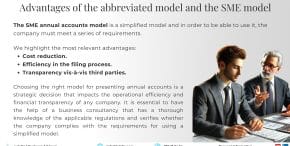
When the pandemic began many experts predicted a reduction of foreign investment in Spain, but the reality has been different and the sale and purchase of real estate in Spain by people living overseas has continued at a good pace during 2021, and is expected to increase in 2022. In today’s article we want to tell you the steps you should follow to buy a property in Spain with an overseas company.
Some of the factors that are influencing positively the foreign investment in real estate in Spain are the improvement of the pandemic situation, the possibility of working from home from any place and the drop in prices.
In terms of investment, it is worth noting that according to Cushman & Wakefield’s MarketBeat Spain report, the activity of international groups is stronger than that of national investors and, furthermore, the logistics sector is one of the sectors that has been boosted the most thanks to the growth of e-commerce.
What formalities must be carried out in order to buy a property in Spain with an overseas company?
In order to buy a property in Spain with an overseas company one must file different forms with the Tax Agency and provide several documents. We’ll take a detailed look at the formalities that must be carried out below:
Get in touch with a Business Consultancy in Spain that will tell you the steps to follow and the requirements that must be fulfilled to buy a property in the country with an overseas firm.
- Look for the property that suits your needs. In order to make this search easier and save time and money, you can contact a local real estate consultant to help you find the right one.
- Request a simple note at the Land Registry. The simple note can be requested in person or through the electronic means of the registry. It is a document that shows the ownership of the property, its characteristics and its charges.
- Get the NIE (identification number for foreigners). This is a number that identifies foreign taxpayers who have economic, professional or social interests in Spain. The NIE number must be included in all public documents signed by the person who has it, for example, in the public deed of purchase and sale. The NIE will not be necessary if the person is Spanish but residing abroad.
- Get the NIF of the firm. In order to get the NIF of the company it is necessary to carry out the following steps:
- Prove that the company exists and is active. This is done through a certificate of Good Standing and Charges from the Commercial Registry of the company’s country of origin.
- Grant the power of attorney to a Spanish person or to someone who has a NIE so that he or she can apply for the NIF of the overseas company. It is possible to appoint, for example, a Spanish advisor as LEIALTA, who takes care of all the formalities. All The documents must be Apostilled by the Haya and have a legal translation
- Finally, the company’s representative must sign the NIF application indicating a contact address in Spain as well as the address of the overseas company.
- Obtain the digital certificate of the company. The documentation needed to get it is the same as that one requested to a legal person resident in Spain, but with the difference that it will have to have the Apostille of the Haya and will need to be translated to Spanish in an official way.
- Sign the Deposit Contract with the seller. The Deposit Contract is a document that states that the buyer pays the seller a certain amount of money (which is equivalent to a percentage of the price), as proof of the commitment to buy. It is important to seek advice from expert lawyers as there are several types of Deposit or Sales / Purchase Contracts in Spain and the scope of each type should be known before signing.
- Register the company for VAT purposes. If the property being purchased will be rented, then the firm must be registered with the Tax Agency so that the quarterly and annual declarations can be made.
- Sign the deed of Purchase / Sale before a Notary Public. It will be possible to give a third party the power to act on behalf of the company’s name and representation and, therefore, to sign the deed of Purchase / Sale.
- Pay taxes and expenses. It is very important to remember that buying a property in Spain with an overseas company generates expenses such as lawyers’ fees, the notary and registry fees, and taxes such as ITP or VAT, depending on the case.
- Register the deed in the Land Registry. The next step consists of the inscription of the deed in the corresponding Land Registry, to give publicity to the sale and purchase.
- Change the ownership in the real estate cadastre. The change of ownership that takes place with the purchase-sale carried out will also have to be made in the real estate cadastre so that there is a record for the purposes of payment of taxes, such as Property Tax.
As shown before, there are several procedures involved in the purchase of a property in Spain that can be time-consuming and require knowledge of the Spanish regulations, so it is very important to have the help of expert advisors to carry out all the formalities with agility.



